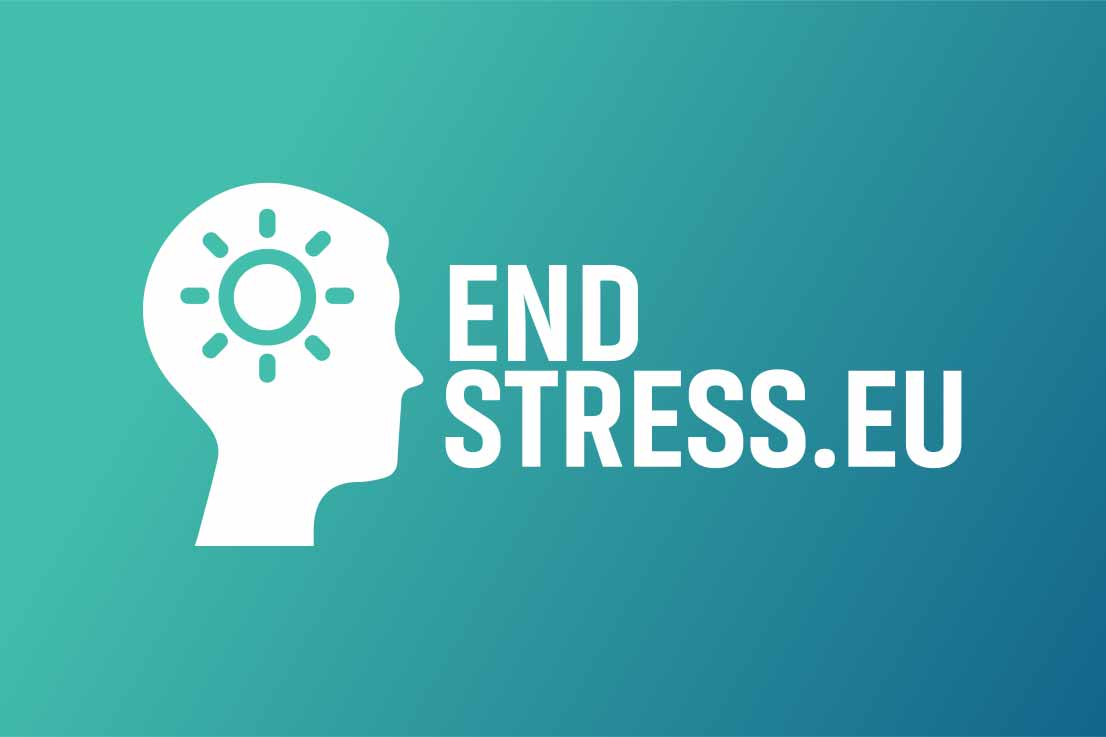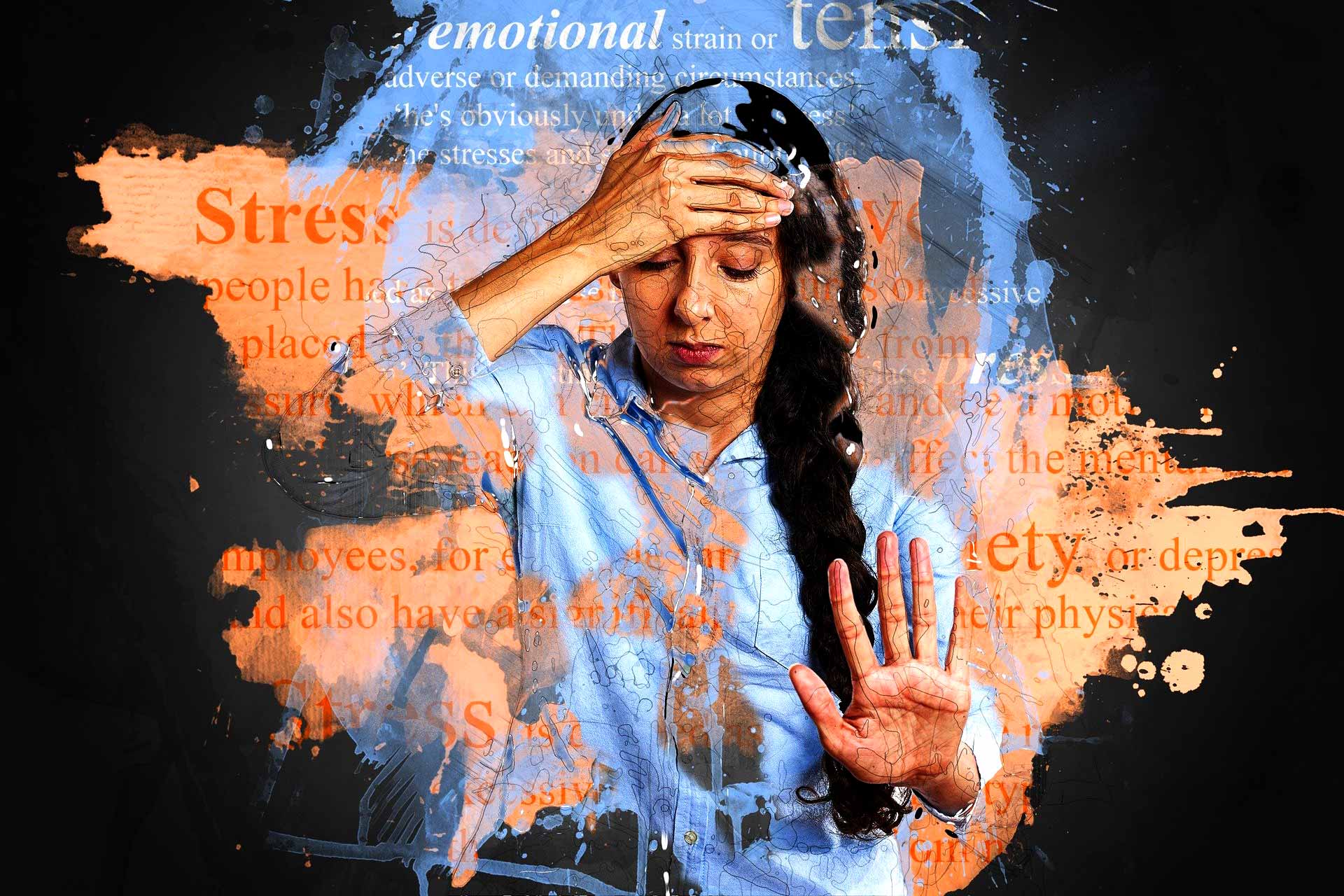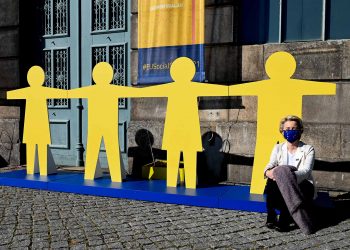Trade unions are launching a campaign Time to End Stress to tackle work-related stress amid a mental health crisis worsened by the lockdown. Stress has become an epidemic. More than half of all working days lost in the EU are caused by work-related stress. It is time for a new EU directive on psychosocial risks at work.
Stress has become an epidemic
4 in 5 managers express concern about work-related stress. More than half of all workers in the EU report that work-related stress is common in their workplace. 88% of employers state that complying with the legislation is the main reason why they manage occupational health and safety. This is why we call on the EU Commission to propose new EU legislation on psychosocial risks at work.
Only a few member states have clear legislation about psychosocial risks. It is time to #EndStress in the EU!

Why does it happen and how can we manage it?
Stress is a natural feeling of not being able to cope with specific demands and events. However, stress can become a chronic condition if a person does not take steps to manage it. Stress is the body’s natural defense against predators and danger. It causes the body to flood with hormones that prepare its systems to evade or confront danger. People commonly refer to this as the fight-or-flight mechanism.
When humans face a challenge or threat, they have a partly physical response. The body activates resources that help people either stay and confront the challenge or get to safety as fast as possible.
We call on the EU Commission to propose a new EU directive to tackle the stress epidemic, which addresses psychosocial risks, violence and harassment and improves work organisation.
ETUC
Stress Causes
People react differently to stressful situations. What is stressful for one person may not be stressful for another, and almost any event can potentially cause stress. For some people, just thinking about a trigger or several smaller triggers can cause stress.
Common major life events that can trigger stress include:
- job issues or retirement
- lack of time or money
- bereavement
- family problems
- illness
- moving home
- relationships, marriage, and divorce
Work-related stress had already become an epidemic before confinement, accounting for more than half of all working days lost in the EU. New Eurostat data shows one in three workers are always or often working under time pressure, a major cause of stress.
But since the lockdown, the United Nations says stress levels in Europe have “risen substantially.” People working from home are twice as likely to work over 48 hours and more likely to suffer repeatedly interrupted sleep.
On the UN’s World Mental Health Day, unions are launching the EndStress.EU campaign to secure an EU directive to tackle the growing problem.
Why it’s time to tackle work-related stress in Europe:
- 51% of EU workers say stress is common in their workplace
- 79% of Managers in the EU are stressed
- The cost of depression due to work is estimated at 617 billion euros per year
- A quarter of workers say they feel emotionally drained by work during lockdown
- 4 in 5 managers express concern about work-related stress
- 61% of female managers have sleep problems
The directive is needed because the EU’s own research shows that 89% of employers say that the main reason they manage occupational health and safety is because of legislations. But only a handful of members states have legislation on work-related stress and just a third of workplaces have an action plan to prevent work-related stress.
Stress costs both lives and money
The campaign is led by the ETUC and Eurocadres, a trade union representing professionals and managers, and is supported by Mental Health Europe as well as over 20 national trade unions. MEPs from the S&D and Green/EFA groups in the European Parliament are also taking part in the campaign launch.
Charles Michel met ETUC of European Trade Union Luca Visentini
ETUC Deputy General Secretary Per Hilmersson said:
“Work-related stress had already reached epidemic levels before the lockdown but working from home has created new pressures that have negatively impacted on peoples’ mental health.
“It is more urgent than ever to tackle Europe’s crisis in work-related stress and the EU’s own research shows employers only take action as a result of legislation.
“It’s time the European Commission showed that they take mental health as seriously as physical health by bringing forward a directive to tackle the work-related stress epidemic.”

Managers need better tools
20% of all managers experience anxiety – the highest share of all occupations. Managers experience the highest level of work-life balance conflicts. Managers and professionals also have the highest work intensity and longest working days. 42% of managers find it more difficult to tackle psychosocial risks than other occupational health and safety issues.
EU law to tackle stress epidemic urgent after lockdown
Eurocadres President Martin Jefflen said:
“4 in 5 managers express concern about stress at work. Managers, our members, need better tools and good legislation can help in creating work organisations which support mental health at work in the EU.”
“We need a separate directive to address the stress at work epidemic, like there are for many physical risks. Health and safety laws can be incredibly efficient. But for psychosocial risks the current EU legal framework from 1989 is not good enough.”
“COVID-19 is still among us and with companies trying to restart activities a directive on psychosocial risks, violence and harassment and work organisation would really have helped. Don’t make mental health the next health at work crisis.”















